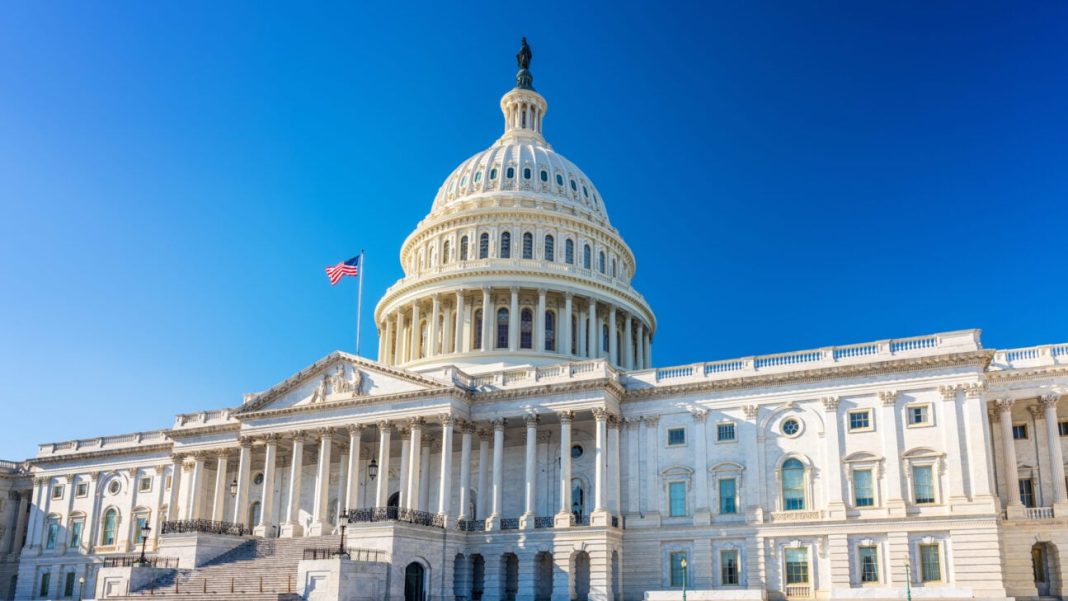Dozens of creative industry groups have thrown their support behind a new bill introduced in the US House of Representatives that would require developers of generative AI technology to disclose the use of any copyrighted materials in training their algorithms.
The Generative AI Copyright Disclosure Act was introduced in the House on Tuesday (April 9) by California Democratic Rep. Adam Schiff.
The proposed law would require anyone who creates or alters a dataset used for AI training to send a notice to the Register of Copyrights that includes “a sufficiently detailed summary of any copyrighted works used.”
The notice would have to be filed at least 30 days before the AI technology trained on that dataset is made available to the public. The act would also retroactively apply to previously released generative AI systems.
The full text of the bill can be read here.
“AI has the disruptive potential of changing our economy, our political system, and our day-to-day lives. We must balance the immense potential of AI with the crucial need for ethical guidelines and protections,” Rep. Schiff said in a statement.
“My Generative AI Copyright Disclosure Act is a pivotal step in this direction. It champions innovation while safeguarding the rights and contributions of creators, ensuring they are aware when their work contributes to AI training datasets. This is about respecting creativity in the age of AI and marrying technological progress with fairness.”
“AI has the disruptive potential of changing our economy, our political system, and our day-to-day lives. We must balance the immense potential of AI with the crucial need for ethical guidelines and protections.”
US House Rep. Adam Schiff (D-CA)
The bill has the backing of numerous trade groups involved in IP-centered industries, including music industry groups such as the Recording Industry Association of America (RIAA), American Society of Composers, Authors and Publishers (ASCAP), the Society of Composers and Lyricists, the National Music Publishers Association (NMPA), the Recording Academy, Nashville Songwriters Association International, Songwriters of North America, Black Music Action Coalition, the Music Artist Coalition and the American Association of Independent Music (A2IM).
It also has the backing of the Human Artistry Campaign, which includes many music industry members, as well as film and TV bodies such as SAG-AFTRA and the Directors Guild of America, as well as the Writers Guild of America (East and West).
“Any effective regulatory regime for AI must start with one of the most fundamental building blocks of effective enforcement of creators’ rights – comprehensive and transparent recordkeeping. RIAA applauds Congressman Schiff for leading on this urgent and foundational issue,” said Ken Doroshow, Chief Legal Officer at the RIAA.
“Without transparency around the use of copyrighted works in training artificial intelligence, creators will never be fairly compensated and AI tech companies will continue stealing from songwriters. This bill is an important step toward ensuring that the law puts humans first, and we thank Congressman Schiff for his leadership,” said Elizabeth Matthews, CEO, ASCAP.
“Protecting the work of music creators is essential, and this all begins with transparency and tracking the use of copyrighted materials in generative AI. BMAC hopes Rep. Schiff’s Generative AI Copyright Disclosure Act helps garner support for this mission and that author and creator rights continue to be protected and preserved,” said Willie “Prophet” Stiggers, Co-Chair, Black Music Action Coalition.
The bill is the latest in a growing number of proposed laws in Washington aiming to address problems created by the rapid arrival of AI technologies. Earlier this year, a bipartisan group of House representatives introduced the No AI FRAUD Act, which would in effect create a federal right of publicity, enabling individuals or rightsholders to sue over the unauthorized use of a person’s likeness or voice.
“Any effective regulatory regime for AI must start with one of the most fundamental building blocks of effective enforcement of creators’ rights – comprehensive and transparent recordkeeping.”
Ken Doroshow, RIAA
Rep. Schiff’s bill echoes similar rules legislated or brought into force in other jurisdictions, including in the European Union, where the recently passed AI Act requires disclosure of the use of copyrighted materials in the training of AI models.
However, the proposed Generative AI Copyright Disclosure Act doesn’t actually legislate a requirement for AI developers to license or otherwise gain permission to use copyrighted materials.
In ongoing court cases across the US, AI developers are arguing that the use of copyrighted materials falls under the “fair use” exemptions to US copyright law.
The proposed law will likely garner pushback from AI companies, who have argued in the past that AI training datasets are often so large that it would be impossible, or at least extremely expensive and inefficient, to catalog every instance of copyrighted content within them.
That’s a claim that is being challenged by the non-profit group Fairly Trained, established earlier this year to certify AI models based on their respect for creators’ rights.
Fairly Trained recently certified its first large language model (LLM), a type of AI algorithm trained on vast datasets.
“One of the most frequent questions we were asked when we launched in January was whether it was realistic to think that we would be able to certify any large language models,” Fairly Trained said in a statement.
“We were optimistic that we would, as there is no fundamental reason that large language model developers can’t work in a way that respects creators’ rights. Today’s announcement answers this question, and strengthens our belief in a future in which a fair approach to training data is the norm.”Music Business Worldwide


